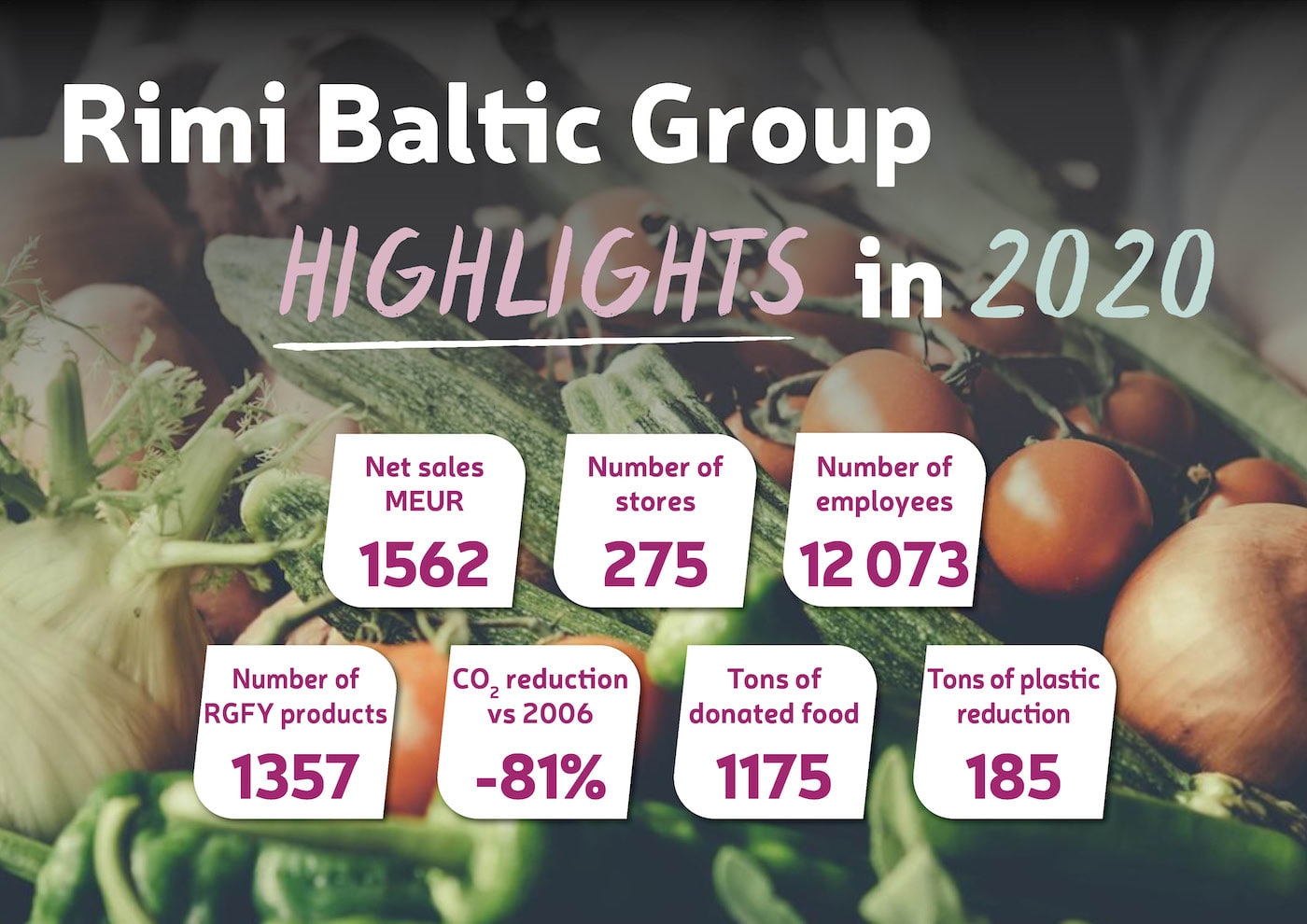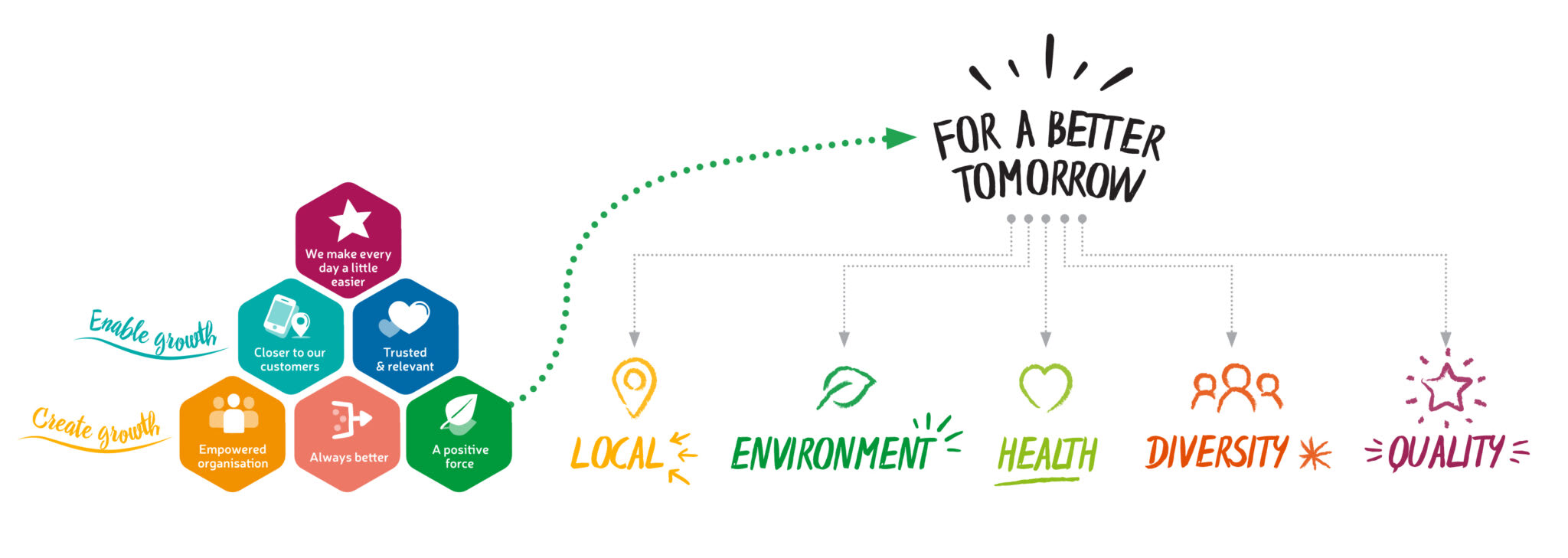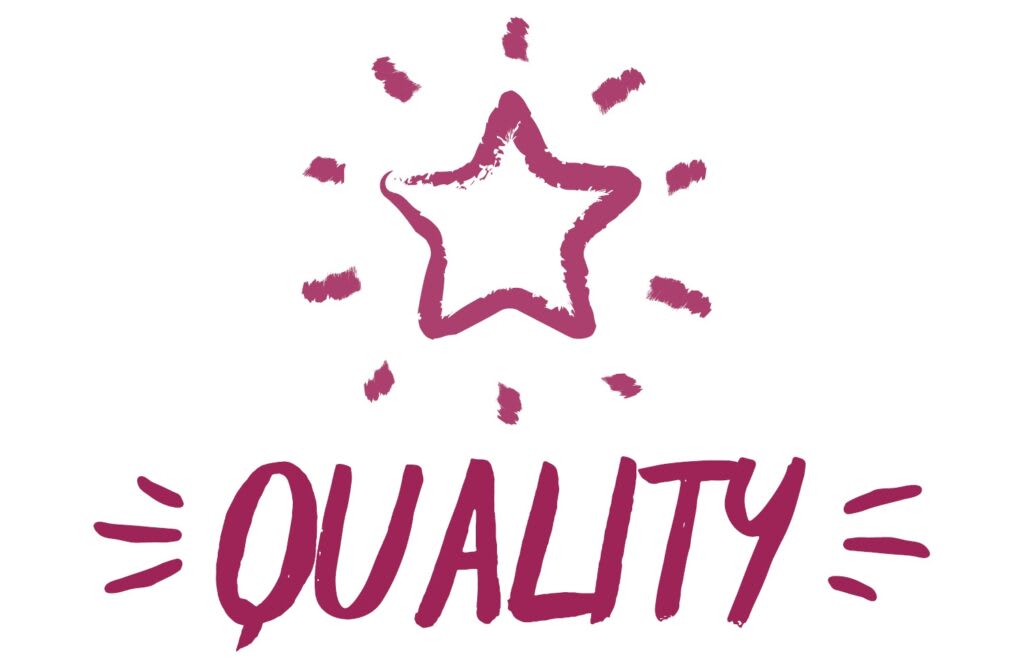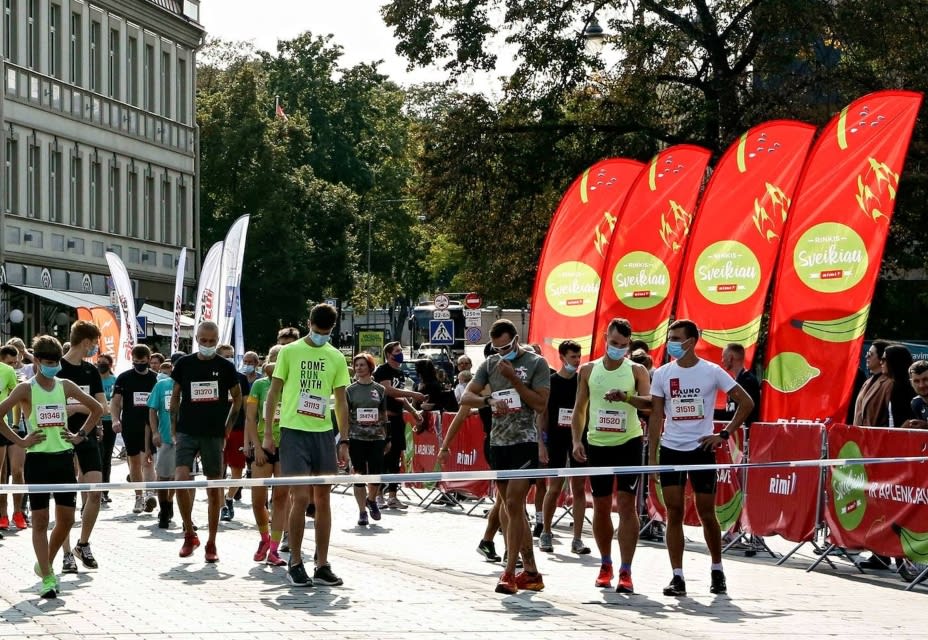Rimi Corporate Responsibility Report 2020
This page provides information on Rimi’s work on sustainability. But before going into details, we invite you to get acquainted with the main highlights of the company in 2020.
This page provides information on Rimi’s work on sustainability. But before going into details, we invite you to get acquainted with the main highlights of the company in 2020.



Despite the challenges of 2020, Corporate Social Responsibility has remained our priority. Large investments in sustainable solutions are already showing payback, and we are doing well in meeting our climate goals. Nowadays, a company without corporate responsibility, like a car without wheels – it will not move forward.
Edgar Seseman
Rimi Baltic Chief Executive Officer
Inside the company, we say “sustainability is in our DNA”. Whatever decision we make, we always think about the environment, the person, the people around us. This year, we have paid a great deal of attention to the well-being of the people and the particularly difficult fight against climate change.
Liudvikas Aleliūnas
Corporate Responsibility Strategy & Development Manager

| Rimi Baltic | Target | 2018 | 2019 | 2020 |
| Rimi Baltic operations will be climate neutral by 2020. Emissions decrease compared to 2006, % | -70 | -44 | -57 | -81 |
| Rimi Baltic corporate brand suppliers (in high-risk countries) that have had a social audit, % | 100 | 91 | 82 | 87 |
| Quality-certified Rimi Baltic corporate brand suppliers, % | 90 | 91 | 89 | 94 |
| Halve food waste in warehouse and stores by 2025. Decrease compared to 2016, % | -50 | +7 | +9 | +9 |



We will actively contribute to the local communities where we operate.

We will minimise our environmental impact, create climate-neutral operations and help our customers make more sustainable choices.

We will actively contribute to improved public health by utilising the strength of our organisation.

We will enhance our competitiveness by increasing diversity in our operations and making the most of differences.

We will ensure that quality and social responsibility is always guiding our operations and business relationships.

.
In recent years, sustainability work has been developed in connection with Agenda 2030 and the UN’s global goals for sustainable development. The 17 goals go into each other and Rimi operations have a direct or indirect impact on all goals. However, ICA Group, where Rimi is part of it, has chosen to focus extra on Objective 3, 5, 8, 12 and 13 areas with a large bearing on the Group’s operations.
Sustainable Development Goals by United Nations


There is substantial and growing demand for locally produced food in the Baltic countries. Increasing numbers of consumers want to eat more food that has been produced locally. Rimi Baltic are actively working to continually increase the number of locally produced items in the product assortment and in 2020, as much as 40% of our total range consisted of products made by local suppliers.


Total CO2 emissions of Rimi (by Rimi, it means Rimi Estonia, Latvia and Lithuania together) in 2020 decreased by -50% compared to 2019. Rimi has reached the Climate Neutral target by achieving a -81% reduction in CO2 emissions compared to 2006, mainly due to more environmentally friendly refrigerants and “green” energy. The remaining 19% of emissions will be compensated by investing in CO2 reduction projects worldwide.
More informationOur ambition is to reduce food waste in half by 2025. Rimi efforts include optimisation of forecasting, product processing, shelf-life monitoring etc. In 2020 Rimi donated 1175 tons of food. This year’s result was negatively affected by the Covid pandemic due to volatile sales. We ended this year at the same level as 2019, and compared to the base year 2016, food waste is still higher by 9%.


By purchasing green energy for own buildings and acquiring Guarantee of Origin certificates for the electricity used in rented ones, Rimi has decreased the amount of generated CO2 emissions over 60 times. In 2020, Rimi reduced electricity consumption by 34% per square metre compared to 2006. This result has been achieved through the introduction of energy-efficient LED lighting, automation, new cooling and air conditioning systems etc.
Over 85% of worldwide seafood stocks are already over-fished or fully fished. From June 1, Rimi is the first retailer in the Baltic’s to terminate purchase of marine products from the ”Red List” compiled within the Seafood Guide of Estonian Fund for Nature, Pasaules Dabas Fonds and Lithuanian Fund for Nature.
More informationIn 2020, Rimi introduced an updated range of shopping bags, including a reusable bag made of 100% recycled plastic. We removed disposable plastic products and replaced them with paper alternatives, which will save up to 100 tons of plastic per year. Rimi wants to ensure that our branded products are packaged in plastic packaging that is easy to recycle, thus contributing to the circular economy. Even the smallest changes bring huge results, for example: the transition to a 100% paper bakery bag will save up to 70 tons of plastic per year in all three Baltic countries.
More information


Rimi is offering a wide range of healthy products with the label “Rimi Good for You” (RGFY). In 2020 we offered 1350 RGFY products with more fibres, wholegrains, with less sugar, salt, better fats, no GMO, no synthetic food additives. Healthier products are selected based on a set of criteria, referring to Keyhole, Baltic, Nordic Nutrition Recommendations and World Health Organization Healthy Diet Guidelines.
In addition to good eating habits, Rimi wants to inspire healthy lifestyle. Rimi Latvia has been partnering for many years with the Rimi Riga Marathon, Rimi Estonia supports the Tallinn Marathon and Rimi Lithuania sponsors Vilnius Marathon, which in 2021 will be called Rimi Vilnius marathon.




In a Nielsen survey in November, Rimi came in first place in Estonia and Latvia, second in Lithuania, when respondents were asked to associate grocery retailers with the statement “Embraces diversity in the company and society”. The gender diversity of Rimi top management in 2020 was 41% man / 59% women. The Gender Equality Ruler assessed the gender equality situation and rated Rimi Lithuania with the highest rating so far – 9.2 out of 10 points.


Rimi requires its corporate brand suppliers to be third-party certified to a specific global quality standard and 94% (target 90%) of suppliers have met this requirement in 2020. Our sourcing function is holding the ISO 9001&14001 certification and distribution centres have passed the BRC audit in 2020. This year Rimi has performed more than 8000 quality tests to ensure product safety, nutrition value or packaging.
Rimi does not accept discrimination, any lack of the right to freedom of association and collective bargaining, child labour, forced labour, young workers being exposed to risky tasks or any other failure to comply with human rights. Rimi requires its corporate brand suppliers in high-risk countries to meet ICA Social Audit requirements and 87% (target is 100%) of suppliers have met this requirement in 2020.
Rimi performed a review of its supplier’s farms and slaughterhouses in 2020 focusing on animal welfare and began a process of risk analysis and a dialogue with third parties in order to carry out audits in 2021. Also, in 2020 Rimi implemented a special programme to prevent food fraud, involving risk analysis of its private label products, education initiatives and the completion of 34 product analyses.
In order to ensure high quality, safety and hygiene standards in stores, regular audits are performed by Quality and Internal Audit functions. These audits focus on ensuring correct store processes, which also include correct product storage conditions, product shelf-life monitoring, or waste management. In 2020, all stores were inspected by an Internal audit team and 258 out of the 275 Rimi stores inspected by Quality team.
